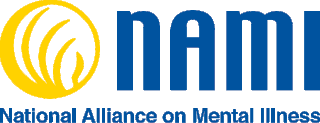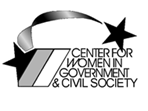Related Research Articles
"School choice" is a term for pre-college public education options, describing a wide array of programs offering students and their families voluntary alternatives to publicly provided schools, to which students are generally assigned by the location of their family residence. In the United States, the most common—both by number of programs and by number of participating students—school choice programs are scholarship tax credit programs, which allow individuals or corporations to receive tax credits toward their state taxes in exchange for donations made to non-profit organizations that grant private school scholarships. In other cases, a similar subsidy may be provided by the state through a school voucher program.
AIESEC is an international youth-run, non-governmental and not-for-profit organization that provides young people with leadership development, cross-cultural internships, and global volunteer exchange experiences. The organization focuses on empowering young people to make a progressive social impact. The AIESEC network includes approximately 40,000 members in 120+ countries.

The United States Information Agency (USIA), which existed from 1953 to 1999, was a United States agency devoted to "public diplomacy". In 1999, USIA's broadcasting functions were moved to the newly created Broadcasting Board of Governors, and its exchange and non-broadcasting information functions were given to the newly created Under Secretary of State for Public Diplomacy and Public Affairs at the U.S. Department of State. The agency was previously known overseas as the United States Information Service (USIS).
The Fulbright Program, including the Fulbright–Hays Program, is one of several United States Cultural Exchange Programs with the goal to improve intercultural relations, cultural diplomacy, and intercultural competence between the people of the United States and other countries through the exchange of persons, knowledge, and skills. Via the program, competitively-selected American citizens including students, scholars, teachers, professionals, scientists and artists may receive scholarships or grants to study, conduct research, teach, or exercise their talents abroad; and citizens of other countries may qualify to do the same in the United States. The program was founded by United States Senator J. William Fulbright in 1946 and is considered to be one of the most widely recognized and prestigious scholarships in the world. The program provides approximately 8,000 grants annually – roughly 1,600 to U.S. students, 1,200 to U.S. scholars, 4,000 to foreign students, 900 to foreign visiting scholars, and several hundred to teachers and professionals.
In international relations, public diplomacy or people's diplomacy, broadly speaking, is any of the various government-sponsored efforts aimed at communicating directly with foreign publics to establish a dialogue designed to inform and influence with the aim that this foreign public supports or tolerates a government's strategic objectives. As the international order has changed over the 20th century, so has the practice of public diplomacy. Its practitioners use a variety of instruments and methods ranging from personal contact and media interviews to the Internet and educational exchanges.

The National Alliance On Mental Illness (NAMI) is a United States-based advocacy group originally founded as a grassroots group by family members of people diagnosed with mental illness. NAMI identifies its mission as "providing advocacy, education, support and public awareness so that all individuals and families affected by mental illness can build better lives" and its vision as "a world where all people affected by mental illness live healthy, fulfilling lives supported by a community that cares". NAMI offers classes and trainings for people living with mental illnesses, their families, community members, and professionals, including what is termed psychoeducation, or education about mental illness NAMI holds regular events which combine fundraising for the organization and education, including Mental Illness Awareness Week and NAMIWalks.

Capacity building is the process by which individuals and organizations obtain, improve, and retain the skills, knowledge, tools, equipment, and other resources needed to do their jobs competently. It allows individuals and organizations to perform at a greater capacity. "Capacity building" and "Capacity development" are often used interchangeably. This term indexes a series of initiatives from the 1950s in which the active participation of local communities’ members in social and economic development was encouraged via national and subnational plans. The United Nations Sustainable Development Goal 17 advocates for enhanced international support for capacity building in developing countries to support support national plans to implement the 2030 Agenda.

The United Nations Alliance of Civilizations (UNAOC) is an initiative that seeks to galvanize international action against extremism through the forging of international, intercultural and interreligious dialogue and cooperation. The Alliance places a particular emphasis on defusing tensions between the Western and Islamic worlds.

The Hubert H. Humphrey School of Public Affairs at the University of Minnesota is one of the United States' top-ranked professional public policy and planning schools. The school is noted for equipping students to play key roles in public life at the local, state, national, and global level and offers six distinctive master's degrees, a doctoral degree, and six certificate programs.

The German Marshall Fund of the United States (GMF) is a nonpartisan American public policy think tank and grantmaking institution dedicated to promoting cooperation and understanding between North America and Europe.

The Bureau of Educational and Cultural Affairs (ECA) of the United States Department of State fosters mutual understanding between the people of the United States and the people of other countries around the world. It is responsible for the United States Cultural Exchange Programs.
Educational leadership is the process of enlisting and guiding the talents and energies of teachers, pupils, and parents toward achieving common educational aims. This term is often used synonymously with School leadership in the United States and has supplanted educational management in the United Kingdom. Several universities in the United States offer graduate degrees in educational leadership.
Women for Women International (WfWI) is a nonprofit humanitarian organization that provides practical and moral support to female survivors of war. WfWI helps such women rebuild their lives after war's devastation through a year-long tiered program that begins with direct financial aid and emotional counseling and includes life skills training if necessary, rights awareness education, health education, job skills training and small business development.
The Council on International Educational Exchange (CIEE) is a non-profit organization promoting international education and exchange. It was founded in 1947 and is based in the United States. The organization is headquartered in Portland, Maine.
Global Ties U.S. is a non-partisan, 501(c)(3) non-profit organization established in 1961 to promote excellence in citizen diplomacy. It is based in Washington, DC, in the United States.
The International Visitor Leadership Program (IVLP) is a professional exchange program funded by the U.S. Department of State's Bureau of Educational and Cultural Affairs. The mission of IVLP is to offer current and emerging international leaders the opportunity to experience the richness and diversity of American political, economic, social and cultural life through carefully designed exchanges that reflect participants’ professional interests and the public diplomacy objectives of the United States government.
United States cultural exchange programs, particularly those programs with ties to the Bureau of Educational and Cultural Affairs (ECA) of the United States Department of State, seek to develop cultural understanding between United States citizens and citizens of other countries. Exchange programs do not necessarily exchange one individual for another individual of another country; rather, "exchange" refers to the exchange of cultural understanding created when an individual goes to another country. These programs can be regarded as a form of cultural diplomacy within the spectrum of public diplomacy.
AcademyHealth is a nonpartisan, nonprofit professional organization dedicated to advancing the fields of health services research and health policy. It is a professional organization for health services researchers, health policy analysts, and health practitioners, and it is a nonpartisan source for health research and policy. The organization was founded in 2000, in a merger between the Alpha Center and the Association for Health Services Research (AHSR). In 2008, the organization had approximately 4000 health services researcher members.

The Center for Women in Government & Civil Society (CWGCS) is a policy research center at the Rockefeller College of Public Affairs and Policy, University at Albany (SUNY). CWGCS was founded in 1978, and is a member organization of The National Council for Research on Women.
The Congressional International Exchange and Study Caucus is a caucus of the United States Congress that aims to raise awareness of the importance and benefits of international exchange and study abroad programs, which enable international citizens to have meaningful exchange experiences in the United States, and Americans to have such beneficial experiences in other countries. It's co-chaired in the 114th Congress by Representatives Steve Pearce of New Mexico and Jim Himes of Connecticut.
References
- ↑ "About Alliance". Archived from the original on 24 July 2011. Retrieved 27 April 2011.
- ↑ "About Alliance". Archived from the original on 24 July 2011. Retrieved 27 April 2011.
- ↑ "About Alliance". Archived from the original on 24 July 2011. Retrieved 27 April 2011.
- ↑ "About Alliance". Archived from the original on 24 July 2011. Retrieved 27 April 2011.
- ↑ "About Alliance". Archived from the original on 24 July 2011. Retrieved 27 April 2011.